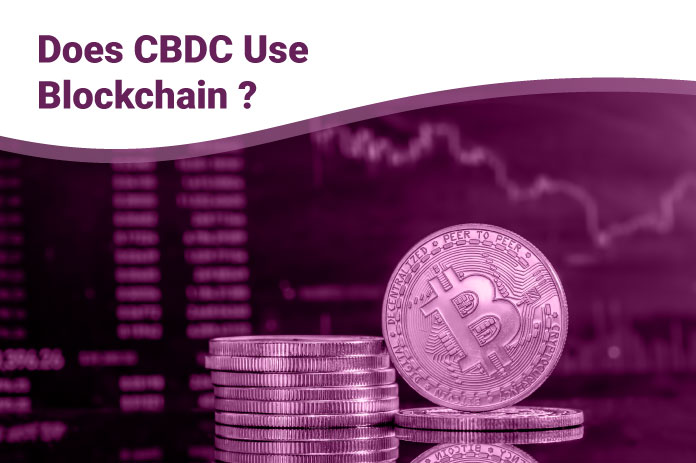Does CBDC Use Blockchain?

Have you ever wondered if Central Bank Digital Currencies (CBDCs) use blockchain technology? Well, I’m here to break it down for you!
In this blog post, we’ll explore whether CBDCs utilize blockchain or if they have an entirely different system in place. Let’s dive into the exciting world of CBDCs and their connection to blockchain technology!
Quick Answer
Yes, CBDC (Central Bank Digital Currency) can use blockchain technology. Blockchain provides a secure and transparent platform for recording transactions, which benefits CBDCs. However, not all CBDCs use blockchain. It depends on the specific goals and requirements of the central bank implementing the digital currency.
How does CBDC utilize blockchain technology?
CBDC, or Central Bank Digital Currency, utilizes blockchain technology in a few ways:
- Blockchain offers transparency and immutability, ensuring that all transactions are securely recorded and cannot be tampered with, which helps to prevent fraud and enhance the traceability of funds.
- Blockchain enables faster and more efficient transactions, reducing the time and cost of transferring funds.
- Blockchain provides a secure platform for smart contracts, automating processes such as settlements and identity verification.
CBDC can provide a secure, efficient, and transparent digital currency for your transactions using blockchain technology.
What advantages does CBDC offer over traditional payment systems?
There are several advantages to using the Central Bank Digital Currency (CBDC) over traditional payment methods, which should be understood:
- It provides enhanced security measures, protecting your transactions from fraud and unauthorized access.
- CBDC allows faster and more efficient payment processing, reducing transaction times and costs. With CBDC, you can enjoy seamless cross-border transactions, eliminating the need for third-party intermediaries and dwindling foreign exchange fees.
- CBDC offers greater financial inclusion, enabling individuals without access to traditional banking services to participate in the digital economy.
- CBDC enhances transparency and accountability as transactions are recorded on a blockchain, ensuring integrity and reducing the risk of corruption.
CBDC offers a more secure, efficient, and inclusive payment system compared to traditional methods.
What challenges do central banks face when implementing CBDC?
Central Bank Digital Currency (CBDC), also known as bank digital currency, is a system that poses several challenges during implementation:
- You need to ensure proper cybersecurity protocols to protect against potential hacking attempts.
- You must address the issue of financial inclusion, ensuring that everyone has access to a CBDC regardless of their socioeconomic status.
- You will have to balance maintaining privacy for individuals while still adhering to strict regulatory frameworks.
- It would help if you navigated the complexities of integrating CBDCs with existing financial systems, including banks and payment providers.
Overall, implementing CBDCs requires careful consideration of security, accessibility, privacy, and system integration, among other challenges.
What are the potential risks associated with CBDC?
Some potential risks associated with CBDC (Central Bank Digital Currency) include cyber attacks and security breaches, as digital currencies are vulnerable to hacking attempts.
A CBDC should also be properly regulated to prevent financial instability and economic risk. CBDC transactions are traceable and can be monitored by the central banks.
There is also a risk of exclusion, where individuals without access to digital payment systems face difficulties participating in the economy.
It is crucial to carefully consider these risks and implement robust safeguards to mitigate them.
What impact might CBDC have on the global economy?
Central Bank Digital Currencies (CBDCs) may have a significant impact on the global economy once they are introduced:
- CBDCs can enhance the efficiency and speed of financial transactions, making cross-border payments faster and cheaper.
- CBDCs can promote financial inclusion by providing access to banking services for the unbanked and underbanked populations, leading to greater economic participation and growth.
- CBDCs allow central banks better visibility and control over the money supply, enabling more effective monetary policy implementation.
There are also risks such as the potential for destabilization of traditional banking systems and privacy concerns. The impact of CBDCs is largely dependent on their implementation and regulation.
Conclusion
You and your daily life are essential to consider whether CBDC uses blockchain. The CBDC, also known as central bank digital currency, is a relatively new digital currency that central banks issue.
This blog post taught us about this emerging form of digital currency. It aims to provide a more efficient and secure payment system for individuals and businesses.
Blockchain technology, with its decentralized ledger and encrypted data, has proven to be a valuable tool in the world of cryptocurrencies, and its potential benefits have not gone unnoticed by central banks exploring the implementation of CBDC.
While the blockchain has many advantages, including enhanced security, traceability, and transparency, it also faces some challenges. These include scalability issues and regulatory frameworks.
Understanding the impact of blockchain on CBDC is crucial to anticipating the possible changes and advancements in our financial systems. So, whether you are an investor, a consumer, or simply curious about the future of digital currency, gaining insights into the connection between blockchain and CBDC can empower you to make informed decisions and stay ahead of the curve in this ever-evolving digital era.
Stay tuned for more updates on the fascinating CBDC and blockchain technology world – your financial future may depend on it!
